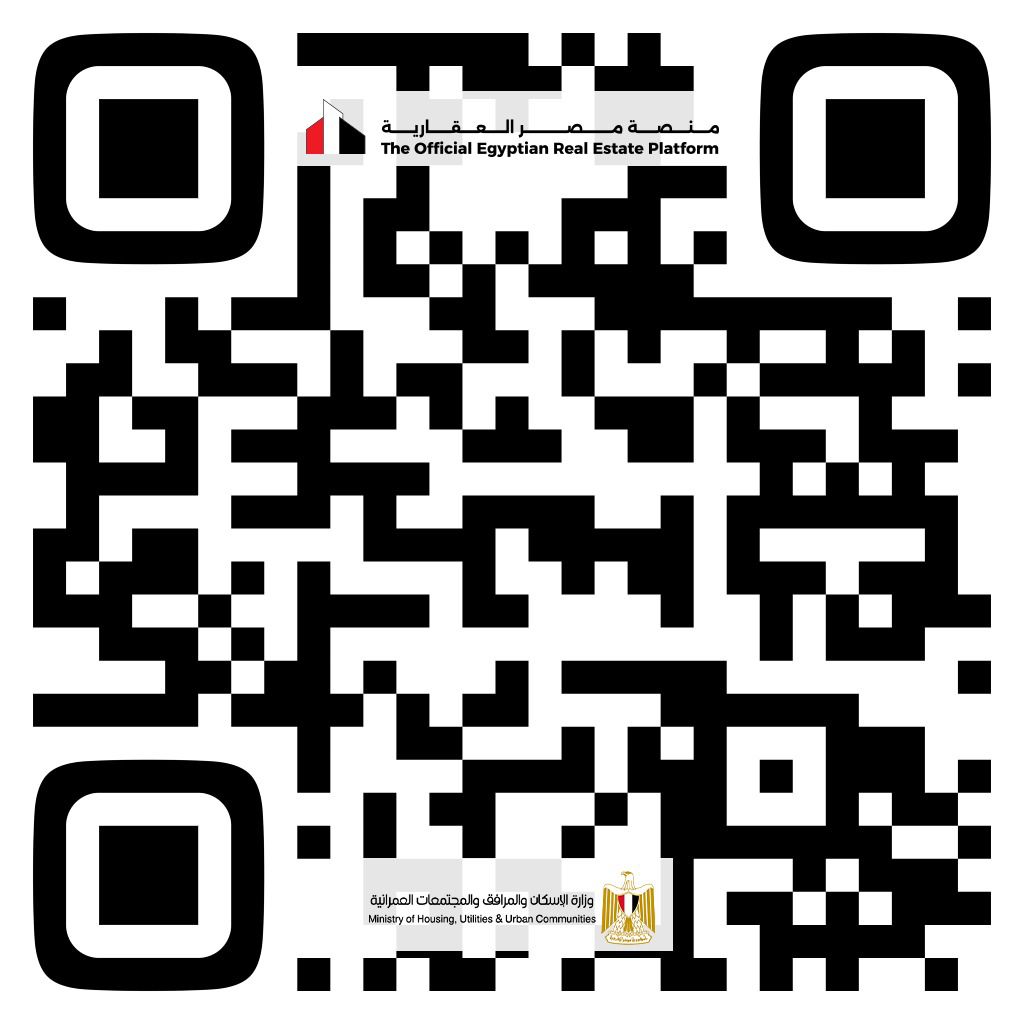Table of Contents
ToggleCan One Platform Regulate an Entire Real Estate Market Fairly?
It might sound too ambitious at first—how could a single digital platform bring fairness, transparency, and balance to something as complex and competitive as Egypt’s real estate market? Yet, this is exactly what the official real estate platform, powered by government-backed MLS technology, is achieving. By centralizing listings, verifying data, and tracking transactions, the platform is regulating the market not just efficiently but fairly. It’s the tool that the sector has long needed to align all stakeholders—from individual buyers to global investors—on one trustworthy playing field.
What Makes This Platform a Game-Changer?
The Egyptian real estate platform isn’t just another tech project—it’s a structural transformation of the market. Designed and backed by the government, it uses MLS (Multiple Listing Service) technology to consolidate, verify, and display property data. It’s accessible to buyers, sellers, brokers, developers, and regulators alike. By doing so, it eliminates guesswork, speculation, and misinformation, replacing them with accuracy, accountability, and real-time access. Every feature—from QR-coded listings to Property IDs—works toward one mission: to create a level playing field that regulates the market without stifling competition.
How Does the Property ID Law Strengthen Market Integrity?
Imagine being able to trace a property’s history like scanning a barcode on a product. That’s the essence of the new Property ID law. Every legally recognized property in Egypt now carries a unique ID, stored and updated in government databases. This ID is linked to ownership documents, zoning details, building permits, and transactional history. For regulators, it becomes a powerful monitoring tool. For buyers and sellers, it’s a trust anchor. It eliminates duplication, false ownership claims, and legal gray areas, making the entire market fairer and more efficient.
What Role Does the QR Code Play in Exporting Egyptian Properties?
Have you ever thought of a QR code as a passport for a property? With a single scan, potential buyers—whether in Egypt or overseas—can access full property details, legal documents, valuations, and certifications. This not only streamlines international sales but adds a new layer of transparency. By ensuring that all public-facing listings are tied to government-verified QR codes, Egypt enables global property exports with minimal friction and maximum credibility. It’s fair to all parties and accessible to anyone with a smartphone.
How Was the Official Real Estate Platform Launched and Why?
Launched under the auspices of the Ministry of Housing and Urban Communities, the platform came to life as part of a nationwide digital transformation strategy. The aim was clear: eliminate confusion in the market, reduce fraud, and create a solid framework for real estate growth. Collaboration with real estate professionals, local authorities, and tech innovators ensured the system reflected real-world needs. The result? A digital space where fairness isn’t just a feature—it’s a fundamental design principle.

What Is the Platform’s Main Purpose Beyond Listings?
While listings are at the heart of the platform, its purpose stretches far beyond. It is designed to regulate behavior, enforce industry standards, and create a single source of truth for all real estate activities. From providing valuation tools to enabling secure document uploads, the platform gives each stakeholder equal access to tools and information. No one has an unfair advantage; no one can operate in the shadows. That’s what regulation should look like.
How Is Egypt Leading in Technology Within the Region?
Egypt is proudly the first country in the Middle East and the Arab world to launch a nationwide, government-operated MLS-based real estate platform. This bold move places the country ahead of its neighbors in digital property management. Features like blockchain verification, AI fraud detection, and automated compliance checks are not just advanced—they’re revolutionary. For a region where informal deals have often ruled, Egypt is setting a new standard for high-tech fairness.
Regulating the Market: How Does the Platform Ensure Fairness for All?
So, how exactly does the platform regulate and ensure fairness in the real estate market? It begins with access—every registered stakeholder, from developers to brokers, must comply with licensing and verification protocols. Each property must carry a legitimate Property ID and be approved before going live. Prices are benchmarked against government data, and discrepancies are flagged. Listings that appear suspicious or repetitive are blocked or reviewed. Brokers cannot list without credentials. Buyers are offered full transparency, and disputes are easier to resolve due to centralized records. Fairness isn’t an afterthought—it’s built into every process.
How Does the Platform Protect Citizens from Fraud?
Have you ever heard stories of buyers being sold properties that don’t even exist? Sadly, they’re common in unregulated markets. But with the platform, every listing goes through a multi-stage verification process, including digital approval from relevant authorities. The system flags duplicates, inconsistent entries, and unlicensed activity using AI. This means you’re much less likely to fall victim to scams. In other words, it protects your investment before you even make it.
What Kind of Data Reliability Does the Platform Offer?
Inaccurate or outdated property data can derail transactions, mislead buyers, and inflate prices. That’s why the platform focuses so strongly on official and reliable data. Each listing includes a Property ID, MLS ID, zoning information, and government validation. This isn’t just helpful—it’s transformative. It turns subjective marketing into objective fact-checking, giving everyone a fair and accurate view of the property landscape.

What Role Do QR Codes Play in Transparency and Fair Dealings?
QR codes are more than a tech trend—they are the symbol of verified transparency. By scanning a listing’s unique QR code, users can instantly access the property’s verified record. That includes legal approvals, owner history, and updated valuations. This prevents misrepresentation and ensures that everyone—from developers and brokers to end-buyers—gets the same factual data. It’s like giving every property its own trusted digital identity.
How Strong Is Government Support for This Platform?
The success of this platform is no coincidence. It is the result of a clear, strong commitment from the Egyptian government. Ministries have aligned to enforce regulatory support, build digital infrastructure, and run educational campaigns. Government backing ensures that the platform remains free from private monopolization and corruption. It levels the field in a way that only state intervention can, making fairness not just possible, but inevitable.
What Is the Impact on the Broader Real Estate Market?
Since its rollout, the platform has already started reshaping Egypt’s real estate market. Prices are stabilizing, fraud is declining, and trust is growing. Professional agents now find themselves part of a respected, monitored ecosystem. Buyers feel safer. Developers are able to showcase projects internationally. And municipalities gain better insight into urban growth. In short, the platform doesn’t just regulate—it uplifts.
Frequently Asked Questions
Is it mandatory for brokers to use the platform?
Yes, all licensed brokers must list properties through the platform to ensure regulatory compliance.
Can citizens use the platform directly to verify listings?
Absolutely. The platform is publicly accessible and allows citizens to verify listings, ownership records, and legal approvals.
How are disputes resolved within the platform?
Since all data is centralized and verified, disputes can be resolved using digital records, greatly reducing ambiguity.
Is there training available for new users?
Yes, the government and partner agencies offer onboarding sessions and training courses to help users navigate the system.
Can international investors use the platform?
Yes. International users can access verified listings, scan QR codes, and connect with licensed brokers through the platform.
The official Egyptian real estate platform is more than just a listing site—it’s a tool for fairness, regulation, and market empowerment. With its blend of cutting-edge technology, government backing, and public access, it is redefining how real estate operates in Egypt. No longer do buyers need to guess, sellers need to worry, or regulators need to scramble for information. Fairness is not only a goal—it is now the standard. The platform proves that with the right infrastructure, one digital system really can regulate and elevate an entire market. The future is here—and it’s transparent, inclusive, and fair.
